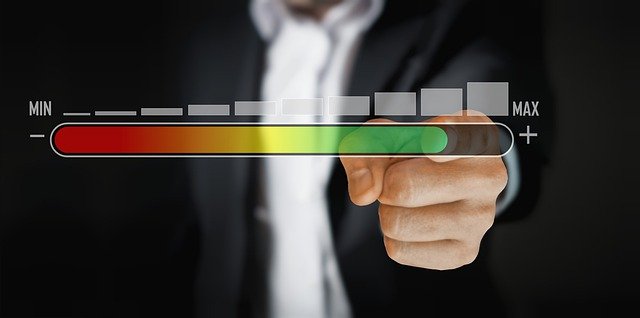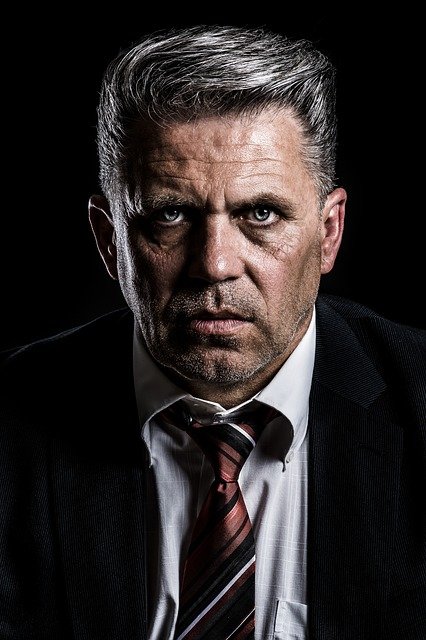Avoiding Burnout as an SDR
Working as an SDR can be a tough and demanding job. There are always new leads to generate and quotas to meet. It can be easy to get caught up in the day-to-day grind and forget to take care of yourself. Burnout is a real danger for SDRs. I asked my former colleagues, including some top performers, how they avoid burnout as an SDR, and we’ll cover that in this article.
But before we get into that, let’s first define burnout.
Table of Contents
What Is Burnout?
Burnout is a state of physical, mental, and emotional exhaustion. It happens when you feel like you’re constantly running on empty. You might have trouble sleeping, feel irritable and anxious, or find concentrating hard. If you’re experiencing any of these symptoms, it’s essential to take action.
From personal experience, burnout can lead to many other problems, including depression, anxiety, and substance abuse. It can also impact your physical health, leading to headaches, stomach problems, and even heart disease.
Why Does Burnout Happen?
Burnout typically results from working too hard or overstressing yourself; it affects your career and personal life. One of the root causes is not having enough energy or enthusiasm for your work.
Having to deal with rejection on a daily basis and being paid based on performance make sales one of the most burnout-prone occupations. Almost every sales professional has experienced burnout – overstretched and overwhelmed – at some point in their careers.

What is an SDR?
Since they are your company’s first point of contact, sales development reps need to have comprehensive knowledge of the prospect and the company before they talk to them. They also need a good understanding of the industry, sales process, and competition to have meaningful discussions.
In addition to calling and emailing prospects, the sales development reps guide prospects through the sales process and prepare them for speaking with a closer – usually an AE.
Essentially, as an SDR, you’ll be tracked on the number of qualified opportunities you generate monthly, also called sales qualified leads (SQL).
Role of an SDR
Let’s take a closer look at the role, responsibilities, and objectives of an SDR now that you understand what an SDR is. Depending on each company’s definition, the job of a sales development representative (SDR) differs. The primary purpose of an SDR is to generate inbound and outbound sales leads.
The Sales Development Representative contacts potential leads or promptly follows up with leads who have inquired about your company. In short, SDRs reach prospects in all directions through the phone, email, and social media, so they know who they are dealing with and what their product is about.
As a Sales Development Representative, you listen to prospects actively and provide them with solutions based on their needs. Leads are educated about how your solution can help solve and improve their business by understanding the prospect’s business model, determining if your product is a good fit, and understanding the problems and solving them.
Here are the general duties and responsibilities of an SDR.
Research, identify and prospect for new customers.
In order to make effective and meaningful conversations, sales development representatives must know the prospect’s industry, the sales process, the competition, and upcoming events.
Make more calls and send more emails.
A sales development representative should follow up on calls, emails, and social media inquiries regarding your company and offerings.
Setup quality meetings and appointments
Sales representatives should prepare a script that outlines innovative ways to qualify and disqualify leads, as well as how to set up quality meetings with managers.
Is Being an SDR Stressful?
So, how does that sound to you? Is being an SDR stressful? A little? A lot? The answer is… it depends.
The role of an SDR is very demanding and can be quite overwhelming at times. From making cold calls to researching leads and handling objections, there’s a lot that goes into the job.
That being said, it’s not all doom and gloom. The role of an SDR can also be very rewarding. It’s a great feeling when you can successfully set up a meeting or close a deal.
If you’re the type of person who enjoys a challenge and thrives under pressure, then being an SDR may be the perfect fit for you.
In addition to that, there is often a love/hate relationship between organizations and their SDR (or BDR) team. Having said that, they shower love on their sales development reps since (let’s face it) their job can be insanely difficult at times!
Despite the acknowledged difficulties in their core responsibilities, these beloved SDR teams are often criticized for their struggle to produce consistent results, which results in:
- Inconsistent sales pipelines
- Suboptimal sales results
- Lack of revenue predictability
- Trouble recruiting and retaining talent
How do you avoid burnout as an SDR?
Realistic Expectations
First and foremost, it’s essential to have realistic expectations. The role of an SDR is very demanding, and it’s important to set realistic goals.
You’re more likely to burn out if you’re constantly putting pressure on yourself to meet unrealistic goals. Remember, it’s okay to miss a goal here and there. The important thing is to learn from your mistakes and keep moving forward.
Time Management
Another key to avoiding burnout as an SDR is to focus on time management. This is especially important when it comes to making cold calls.
Getting caught up in the moment and spending hours on the phone without taking a break can be easy. However, it’s important to take breaks and give yourself time to recharge.
In addition, it’s important to manage your time wisely when it comes to research. Spending too much time researching a lead can actually be counter-productive.
You don’t want to get so caught up in the details that you forget to make the actual call. The goal is to strike a balance between research and action.
Keep a Steady Mindset
It’s exciting to sell! You can get caught up in the highs and lows of the week, but the truth is that the emotions are constantly fluctuating each day. As important as it is to celebrate successes, it is equally important to move on from failures without dwelling on the negatives. Your mental sanity will be immensely improved if you keep a steady temperament.
Mix It Up
Having a daily routine and cadence is part of your daily routine. Although replication can result in success, it can also lead to incredibly monotonous working conditions. It is up to you to view your job from different perspectives.
Personally, I like to think of it as playing a video game. The goal is always the same (to book as many meetings as possible), but the path you take and how you get there can vary each day.
This is your opportunity to show some creativity! Don’t be afraid to try new things and experiment. If something doesn’t work, that’s okay! You can always go back to the drawing board and try something else.
Take a Break
I think sometimes we need a little break, and that’s okay. No matter what you do, taking time for yourself is essential, whether it’s an afternoon walk after a particularly long call or taking a much-needed “mental health” day after a stressful month.
As your physical energy increases, you will be better able to perform at your job, and your mental clarity will improve.
Why am I struggling as an SDR?
What if you’re doing ALL of that, but still struggling to reach quota? Here are a few reasons that might be the case:
Lack of Adequate Training
If you’re new to sales or SDR, it’s important to get adequate training. The role of an SDR is very complex, and there is a lot to learn. In addition, the sales process is constantly changing, so it’s important to stay up-to-date with the latest sales techniques and advice. My recommendation? Check out our sales courses here. You’ll have 24/7, lifetime access.
Lacking the right sales tools
SDRs face one of the biggest challenges when it comes to having the right tools or sometimes too many tools. There are hundreds of platforms that promise to simplify sales processes. You might not even be able to decide on which tools your company uses, but it can be a headache putting together the right sales tech stack.
Finding high-quality prospects
Prospecting is a significant part of SDRs’ roles, which makes sense since the success of the entire sales process depends on quality leads. It has always been challenging to find high-quality prospects.
In addition, you don’t want to be “that guy” who approaches everyone with zero interest in your product. It’s not a good look.
Prospects are busier
It’s no surprise that despite all the tools meant to make life easier -such as email, Slack, smartphones, cloud-based storage, and SaaS solutions – they’ve most often made things more difficult.
Prospects might use several messaging apps, participate in conference calls, and send text messages; some may have several phones and one email to check.
Timing is everything in the role of a sales development representative. The prospect might want to avoid booking things when they have more pressing matters, but it isn’t easy to tell. It can be complicated to know when to contact them.
How do you succeed as an SDR?
There are the following tasks you must perform effectively to succeed as an SDR:
Make the Most of Your Time
When it comes to sales, there is always room for improvement. Whether it’s making calls, following up on prospects, or developing relationships, there’s always something to do.
It can seem overwhelming if you’re new to sales, but successful sales development representatives know what priorities to focus on and when. In order to be successful as an SDR, most of your time should be spent prospecting for new customers or preparing to prospect. Look for ways to automate or streamline your sales tasks to maximize your time.
Collecting prospects’ names, emails, and numbers is crucial, but this does not need to take up all your time.
Be a Passionate Product Expert
To explain why your product is suitable for others, you should know it well, live it, and breathe it. Investigate your product in detail, talk to your manager, and seek feedback from your customers.
Here we aren’t talking about knowing every technical detail, although you should also know them. The effect of your product on the lives of your customers and the problem(s) it solves are essential to know. You’ll have an easier time selling your product if you’re passionate about it (and how it helps your customers).
Become a Master Communicator
Communication is the foundation of sales – with prospects, teammates, and your manager.
Although some people are more comfortable with communication skills than others, you should always strive to improve your communication skills.
You can start by learning and mastering the following communication skills:
- try to listen more and talk less
- Send emails with a clear and conscious message
- Avoid talking and sounding like a salesperson
- Ask for both positive and negative feedback
Practicing communication is the most effective way to improve. Every conversation is a chance for you to improve your communication skills, whether with your boss, coworkers, prospects, or even friends and family.
Conclusion
SDR burnout is real, but it doesn’t have to be inevitable. If you set realistic expectations, take breaks, keep a positive mindset, and mix things up, you’ll be well on your way to avoiding SDR burnout.
What other tips do you have for avoiding SDR burnout? Let us know in the comments below!








